
- Sasha Goldstein
- Activists march in Burlington in October.
On Wednesday morning, after Donald Trump had been declared the victor in the presidential election, an undocumented Mexican woman phoned Migrant Justice spokesman Will Lambek. For the first time, she told Lambek, she was hesitant to send her children to school, worried about the blowback they might face.
Insecurity and unease on the part of migrant workers and their families isn't a new phenomenon, emphasized Enrique Balcazar, a former farm worker and an organizer for the human rights group.
But if Trump's win left liberal Vermont in bewildered apprehension, the sentiment was all the more acute for Vermont's migrant worker community. Balcazar and Lambek spent a harried day fielding calls from undocumented laborers and citizens alike, all digesting the election results.
Balcazar, speaking with
Seven Days at the organization's Burlington offices on Wednesday, predicted that a Donald Trump presidency will only increase existing tensions. He called the president-elect "a spokesperson for the community that believes ... that this hate should exist."
Vermont has upwards of 1,500 immigrant workers — many of whom arrive undocumented from Mexico. The immigrant workers make up about 90 percent of the hired labor force on Vermont dairy farms, said Lambek. Currently, there's no legal pathway for Latin Americans to come north to work in the industry, he noted.
Throughout the presidential campaign, Trump has promulgated a hardline, and often self-contradictory, policy on immigration. He vowed "on day one" of his presidency to start building a wall along the southern border of the United States, paid for by Mexico. He has vowed to triple the number of Immigration and Customs Enforcement (ICE) agents and to rescind the Deferred Action for Childhood Arrivals law passed by President Barack Obama, which allows young undocumented immigrants to pursue education and employment without fear of deportation. In July, Trump tweeted that he would ban Muslims from the U.S., something he later denied.
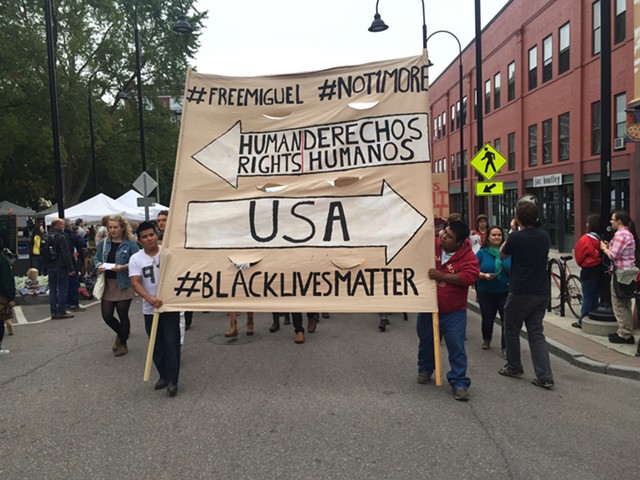
- Sasha Goldstein
- The October march
Both the unions of ICE agents and Border Patrol agents endorsed Trump. Lambek predicted that those law enforcement agencies will be granted more leeway to act under Trump: "They see it as him untying their hands," Lambek predicted.
Undocumented workers, though, aren't immune from similar risks under the current administration. "We should be really clear: Deportations are already happening," Lambek said.
President Barack Obama, whom Lambek labeled "Deporter in Chief," has been responsible for more than 2.5 million deportations. More than a dozen Vermont farm workers have been arrested by ICE within the last few months.
Trump's immigration policy ushers in a related set of concerns for undocumented workers and their families. Balcazar worries that Trump's anti-immigrant rhetoric will trickle down to classrooms and community dialogue, legitimizing insults and discrimination. Workers already perceive an increased threat.
"In the first few months, starting now, people are fearful of leaving their farms to cover their basic needs, going to the store, the bank, to see a friend," Balcazar said.

- Sasha Goldstein
- Marchers with signs held high
Cheryl Connor, who owns a dairy farm in Bridport and runs the Addison County Farm Workers Coalition, predicted that the election may portend trouble for the state's dairy industry. Already, she said in an email to
Seven Days, farmers are seeing a labor shortage. "Now there is a crisis for dairy farmers to get migrant workers and I see this as getting worse with a new immigration policy coming," she wrote.
Vermont's migrant workers have seen real gains in the last few years, Lambek noted. Migrant Justice effectively lobbied for a 2013 law allowing undocumented workers
to apply for driver's licenses and the 2014 effort to pass the Fair and Impartial Policing Act, which requires training for officers and the collection of certain data during traffic stops.
For now, the organization will be working to sustain that momentum. The opportunity may be ripe, Balcazar said, to build and strengthen the alliance between farmers, workers, and the broader community.
The election "gives the courage to unite us more — not only the Latin American community, but also African Americans, Muslims and everyone," he added.









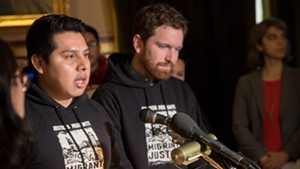
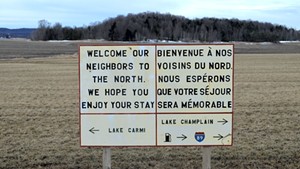
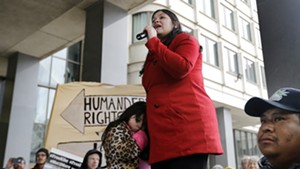
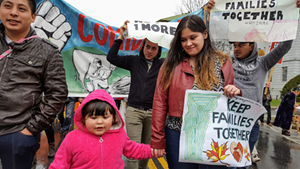
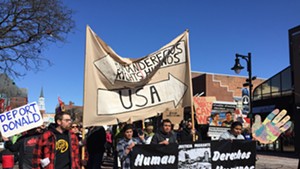




Comments
Showing 1-1 of 1
Comments are closed.
From 2014-2020, Seven Days allowed readers to comment on all stories posted on our website. While we've appreciated the suggestions and insights, right now Seven Days is prioritizing our core mission — producing high-quality, responsible local journalism — over moderating online debates between readers.
To criticize, correct or praise our reporting, please send us a letter to the editor or send us a tip. We’ll check it out and report the results.
Online comments may return when we have better tech tools for managing them. Thanks for reading.